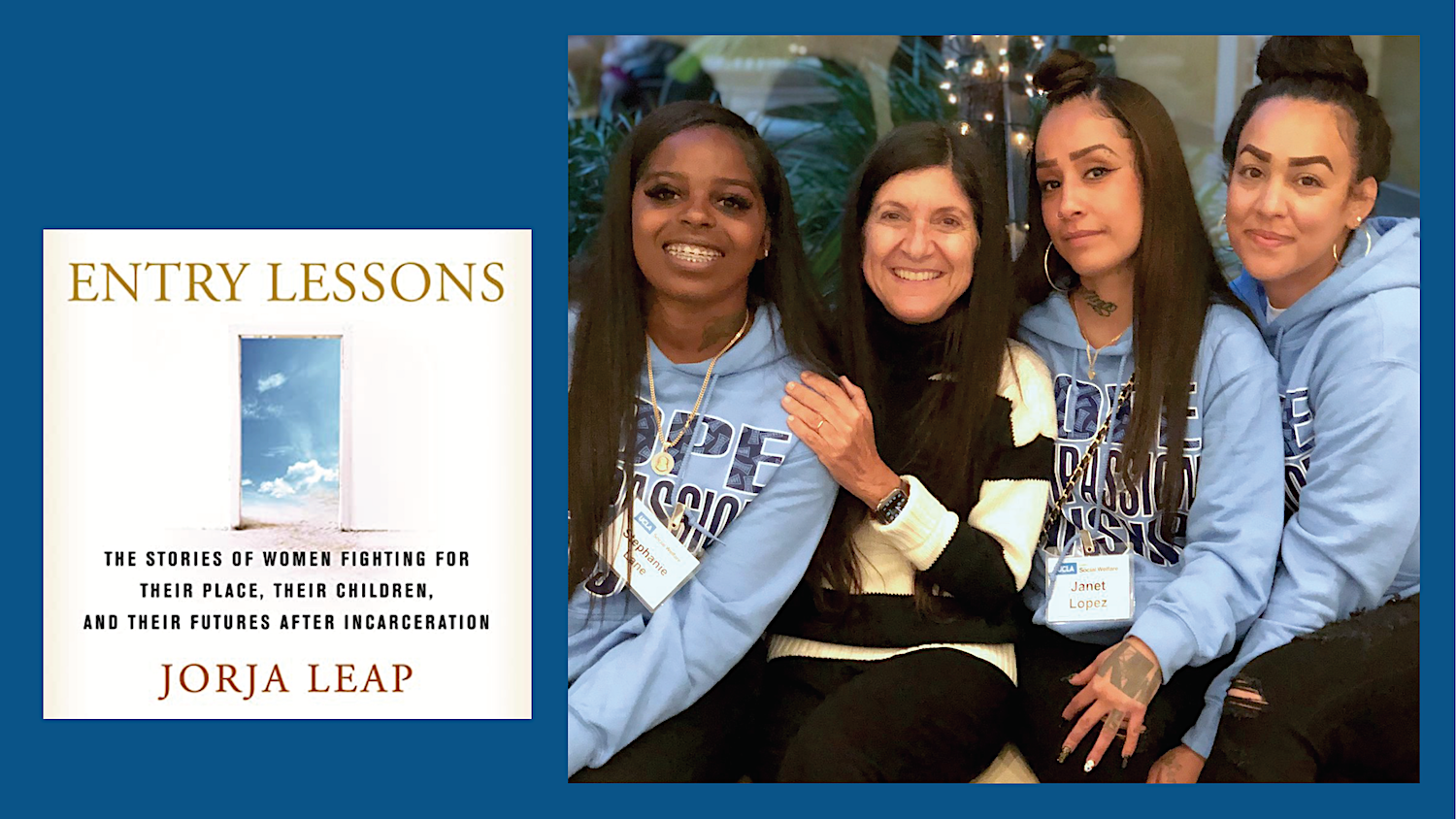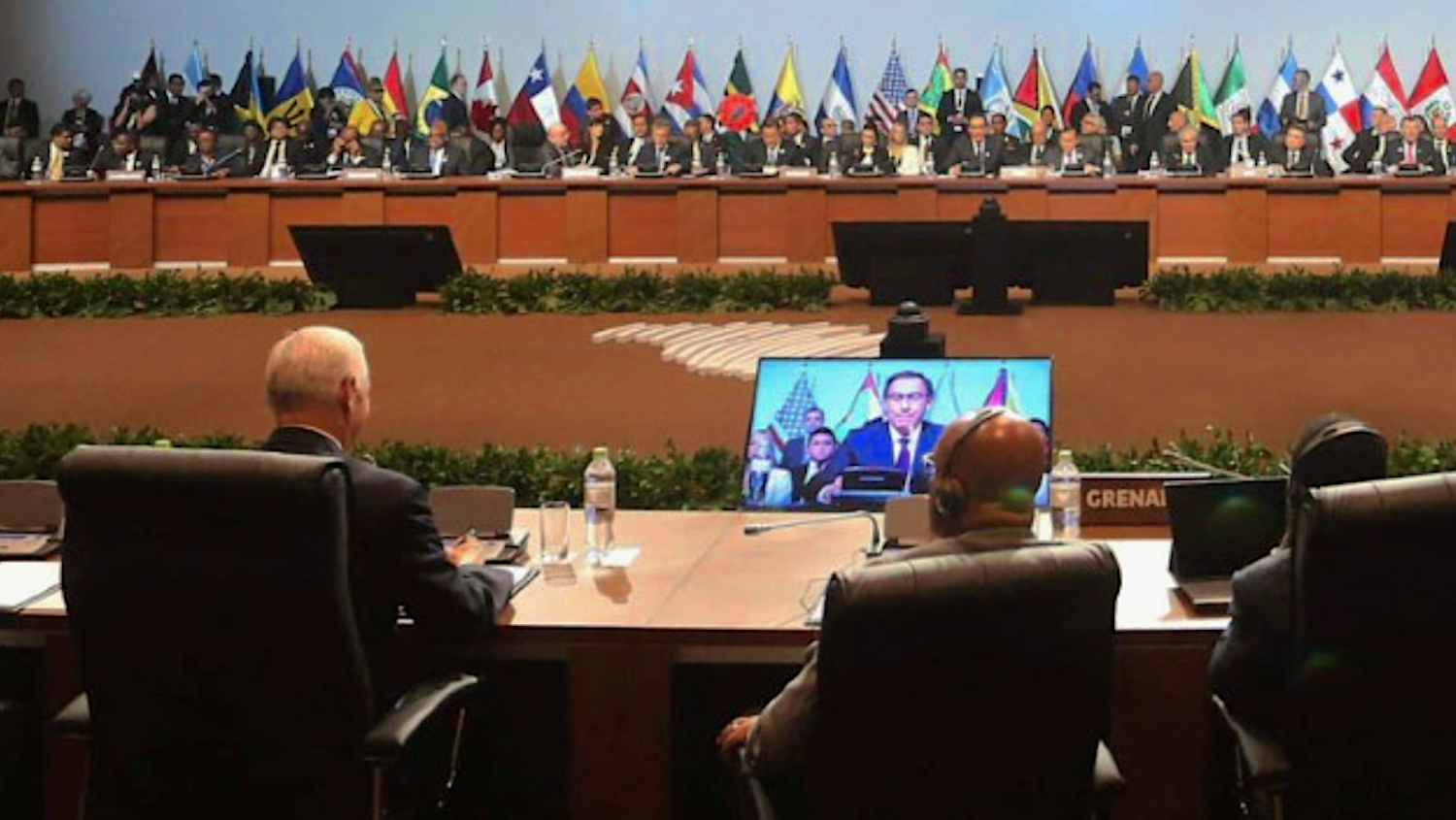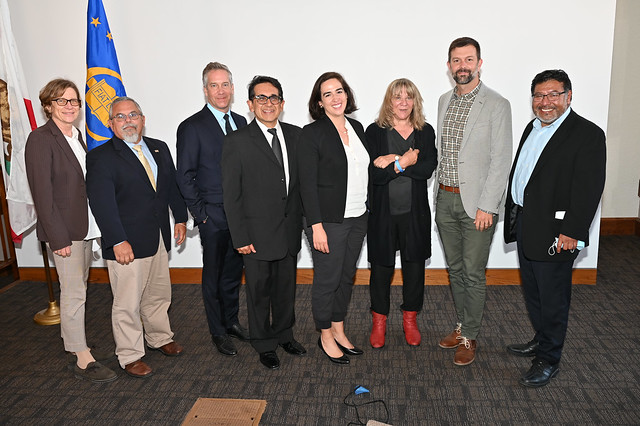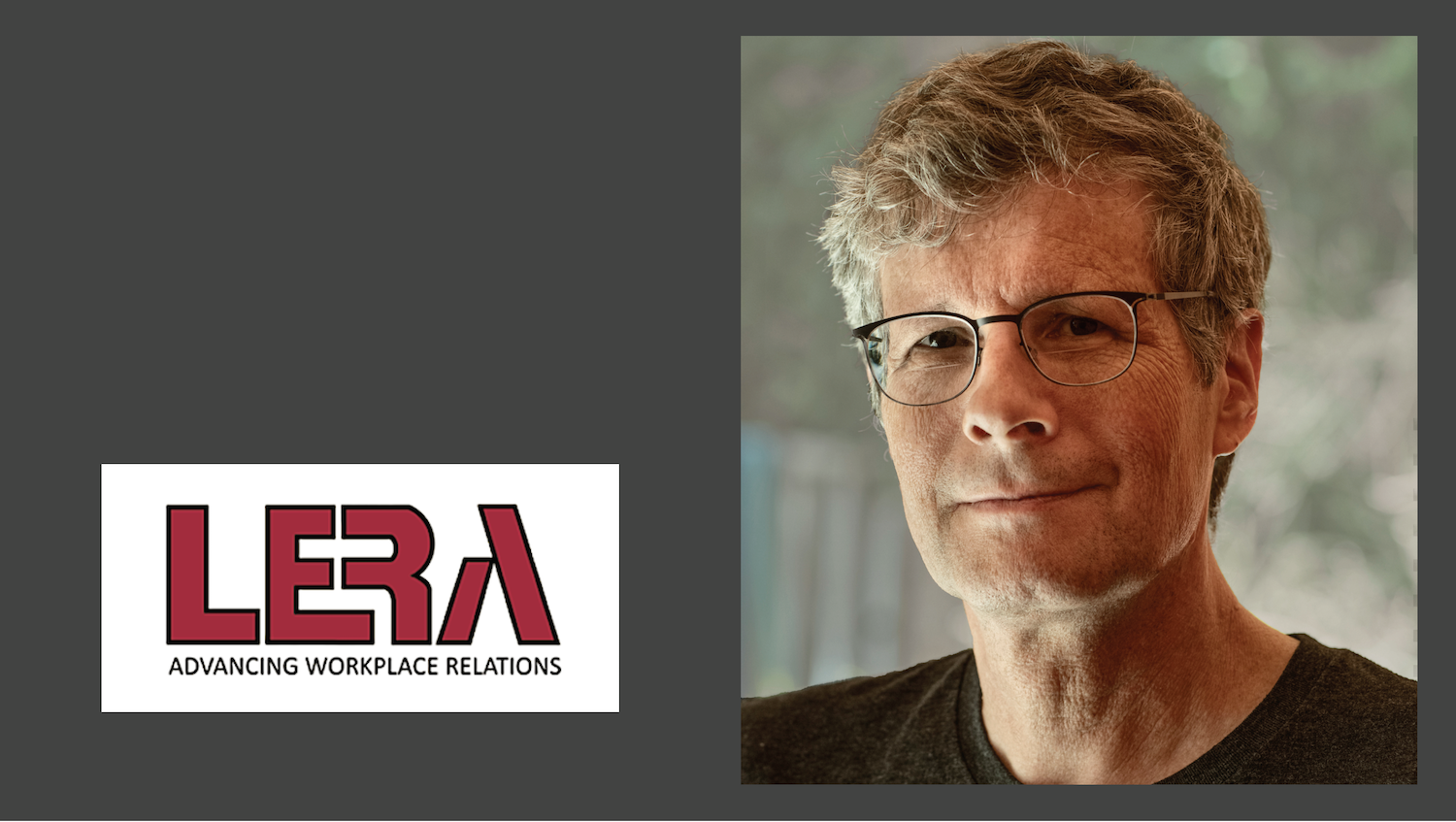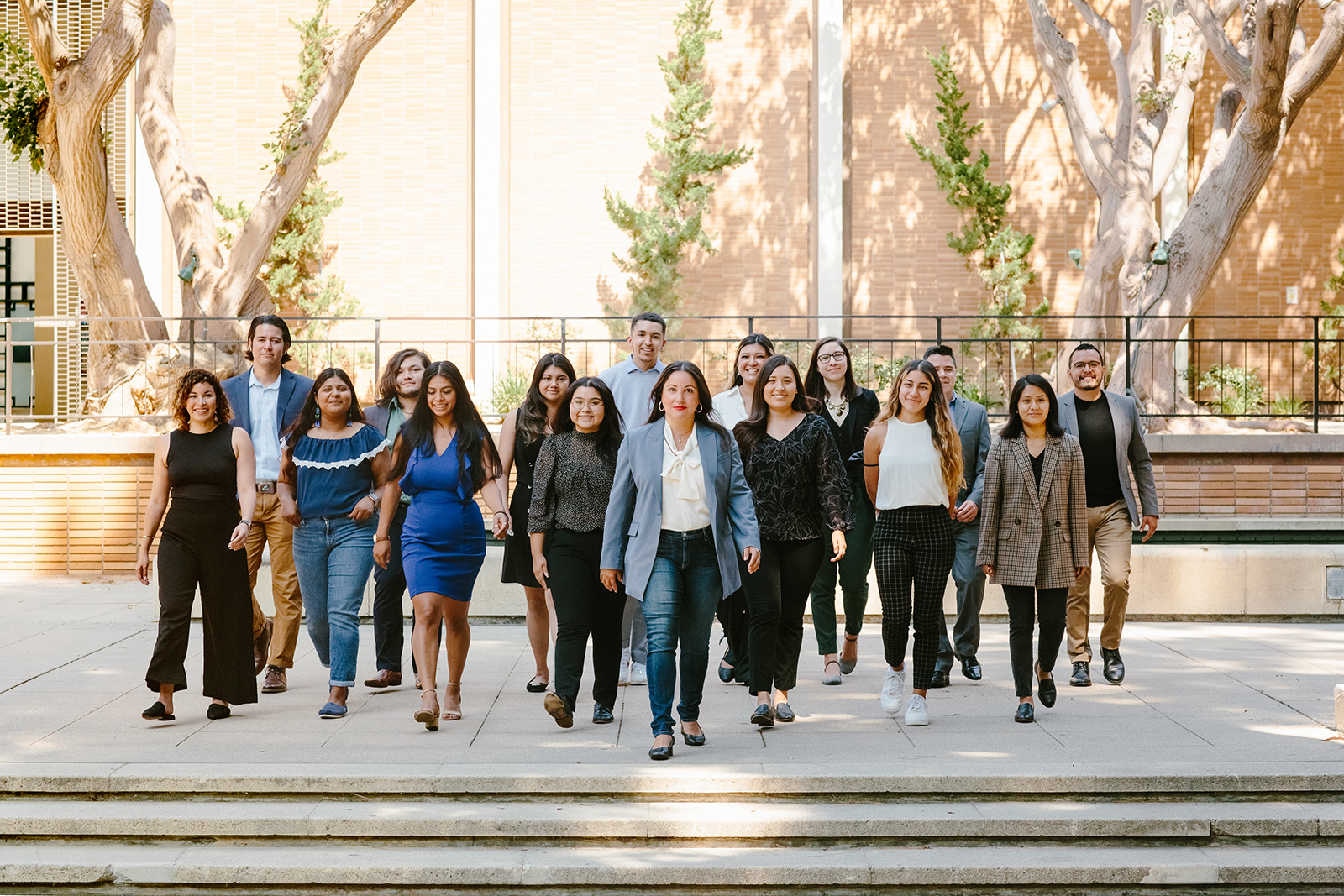
LPPI Formally Transitions From an ‘Initiative’ to Become UCLA Latino Policy and Politics Institute
The former UCLA Latino Policy and Politics Initiative has officially become the UCLA Latino Policy and Politics Institute, thanks to $3 million in ongoing annual funding from the state. The funding, championed by the California Latino Legislative Caucus, was initially secured in 2021 and continued in the state budget bill passed June 14. The support has allowed the institute, known as LPPI, to grow from a start-up initiative to a permanent research fixture at UCLA with a robust fellowship program and a consortium of nearly 50 faculty experts across UCLA. Founded in 2017 by attorney and MPP alumna Sonja Diaz and UCLA Professor Matt Barreto through a partnership between the Luskin School and the division of social sciences, LPPI was launched to address domestic policy challenges facing Latinos and other communities of color. It utilizes the power of research, advocacy, mobilization and leadership development to propel policy reforms that expand opportunity for all Americans. “As chair of the Latino Legislative Caucus, I am so grateful for the Latino-centric research from LPPI that has helped us formulate the policies our communities need most,” said state Sen. María Elena Durazo. “Latinos play an essential role in California, yet we are disproportionately impacted by issues like the gender pay gap and disparate health outcomes. It is critical that we have a Latino-focused think tank with readily available data on the various topics that Latinos care about most.” LPPI’s status as a leading national Latino policy institute furthers UCLA’s goal of achieving federal designation as a Hispanic-Serving Institution by 2025. — Alise Brillault
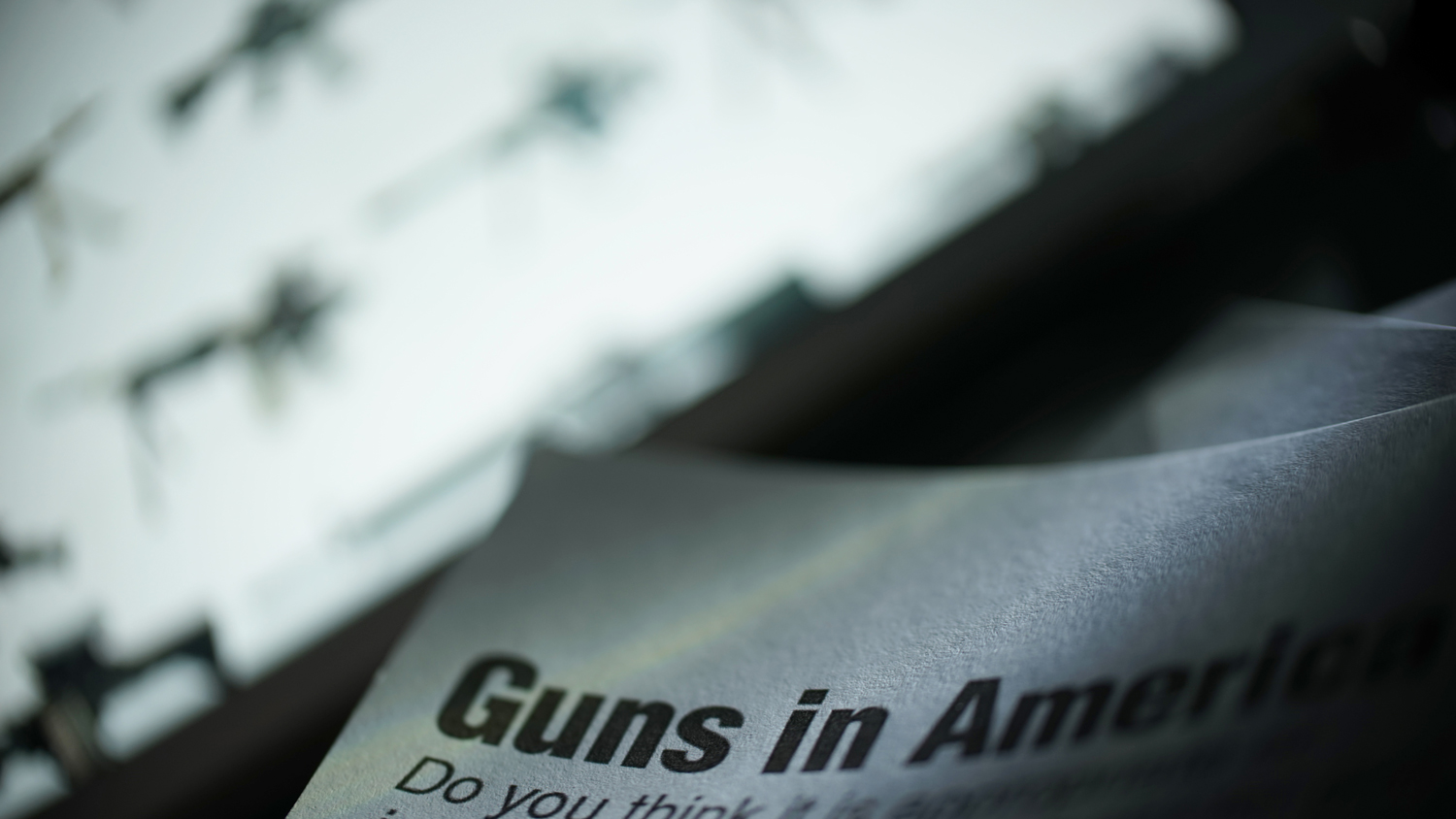
Science, Health Leaders Unite Around National Firearm Policy Reforms
A nationwide coalition of more than 1,200 leaders in science and health, including more than 450 members of the National Academies of Sciences, Engineering and Medicine, has submitted a letter urging the United States Senate to rapidly pass legislation advancing evidence-based approaches to reduce the toll of gun violence in America. The coalition, with Jody Heymann of the Fielding School of Public Health and UCLA Luskin Public Policy serving as lead author, calls for reforms in four key policy areas:
- prohibiting people who have committed violent crimes or have domestic violence restraining orders from purchasing firearms;
- adopting child access prevention and safe gun storage laws, which studies show would reduce gun suicides and unintentional gun deaths among children and youths;
- requiring firearm licensing and training requirements, especially for people obtaining guns for the first time;
- taking action on large-capacity magazines as a way to significantly lower deaths in mass shootings.
Among the letter’s signatories are researchers from every region of the country, including college presidents and university deans. The health and science leaders also commend the recent bipartisan deal in Congress on a set of reforms that would begin to make progress in some areas. Heymann is a distinguished professor of health policy and management, public policy, and medicine and a former dean at the Fielding School. “Each of these recommendations has been studied through research comparing the experiences of states with and without certain laws over time—and the evidence is clear they work,” she said.
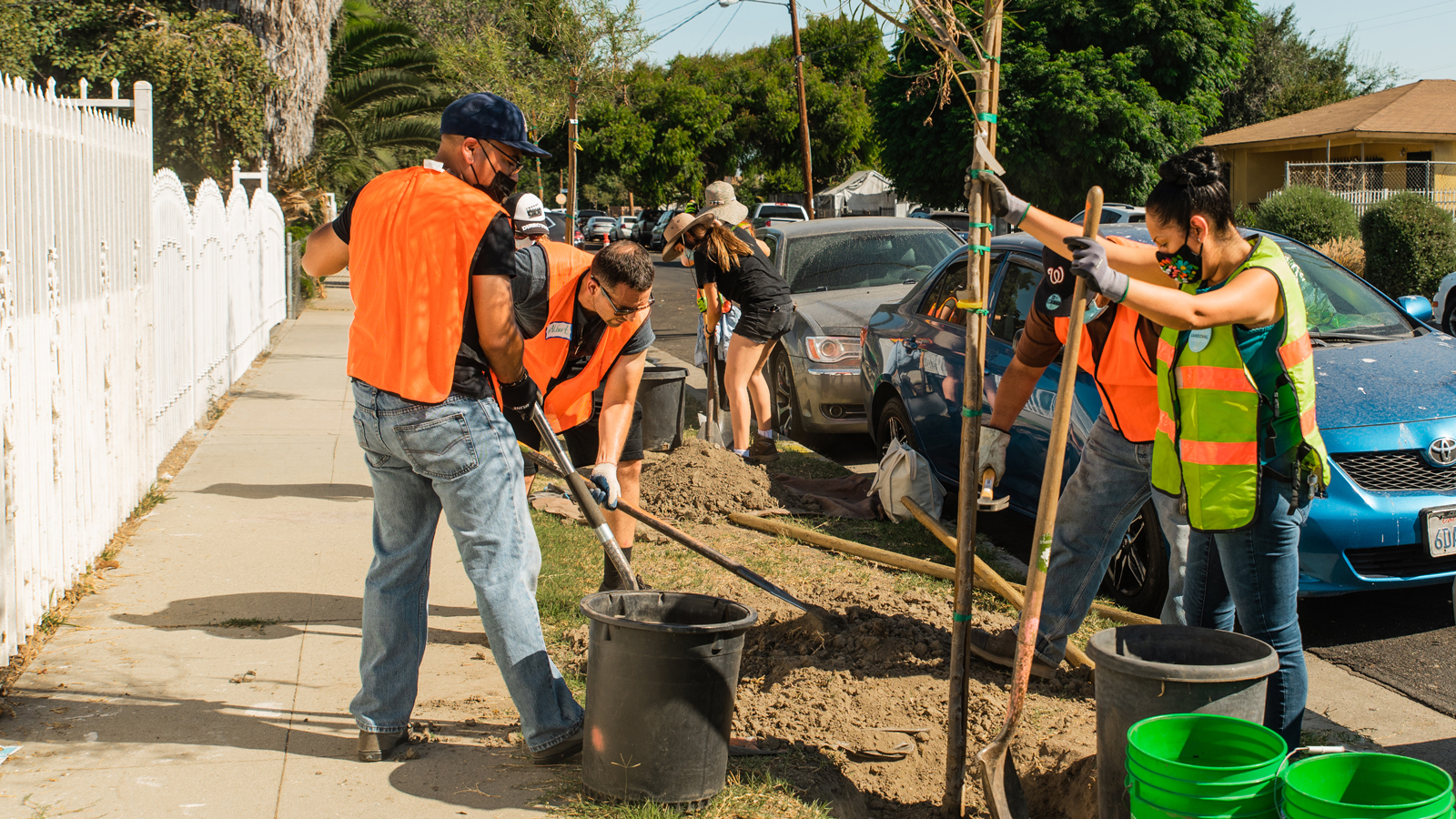
State Investments to Fight Climate Change Are Working, Reports Show
Watts is a leader in local solutions to the climate crisis, according to new progress reports for a state-funded project. This year, 300 Watts residents received energy efficiency upgrades like smart thermostats and LED lighting to cut down on greenhouse gas emissions and reduce energy bills. Volunteers delivered 261,000 pounds of fresh food to almost 10,000 residents by rescuing produce that would have otherwise ended up in landfills. And the community also started planting 2,250 trees, which will cool down streets and sequester carbon. These projects in Watts are part of the Transformative Climate Communities (TCC) program administered by California’s Strategic Growth Council, which is providing millions of dollars in grants for climate action and community benefits in partnership with local government, residents and organizations. The UCLA Luskin Center for Innovation analysis documents the progress of TCC-supported action in five communities across California: Fresno, Ontario, Stockton, and the northeast San Fernando Valley and Watts neighborhoods of Los Angeles. The annual reports are part of an ongoing evaluation that UCLA is conducting in collaboration with TCC grantees. “Learning from these pilots is important,” said Jason Karpman, project director at UCLA. “As one of the most comprehensive community-scale climate programs in the world, lessons from TCC can support equitable climate action elsewhere.” Policymakers are considering how to bring elements of TCC to more underserved communities, and a previous report from the Luskin Center for Innovation identified the TCC program as a nationwide model for such efforts.
New Book by Leap Portrays the Struggles of Women After Incarceration
A new book by Adjunct Professor of Social Welfare Jorja Leap portrays the daily struggles of women returning to life after incarceration and proposes concrete solutions to the problems they face. “Entry Lessons: The Stories of Women Fighting for Their Place, Their Children, and Their Futures After Incarceration,” published by Beacon Press, draws on oral histories, interviews, embedded observation and extensive research conducted by Leap, an anthropologist who specializes in criminal justice and prison reform. At the end of 2019, women comprised the fastest-growing population within the U.S. criminal justice system, yet the impact of their journey — both on their own lives and on the lives of their children and families — is only beginning to be documented, Leap writes. “Entry Lessons” explores the traumas girls and women suffer, followed by the particular challenges they face in the criminal justice system, in incarceration and throughout their reentry into society. Leap includes several future-facing chapters that call for structural change through the development of meaningful programs and policies that end the cycles of abuse and trauma in the lives of women. In May, some of the women whose stories were shared in “Entry Lessons” appeared with Leap at a reception and book-signing at the UCLA Fowler Museum Courtyard, hosed by UCLA Luskin Social Welfare and Beacon Press.
View more photos from the book reception on Flickr.
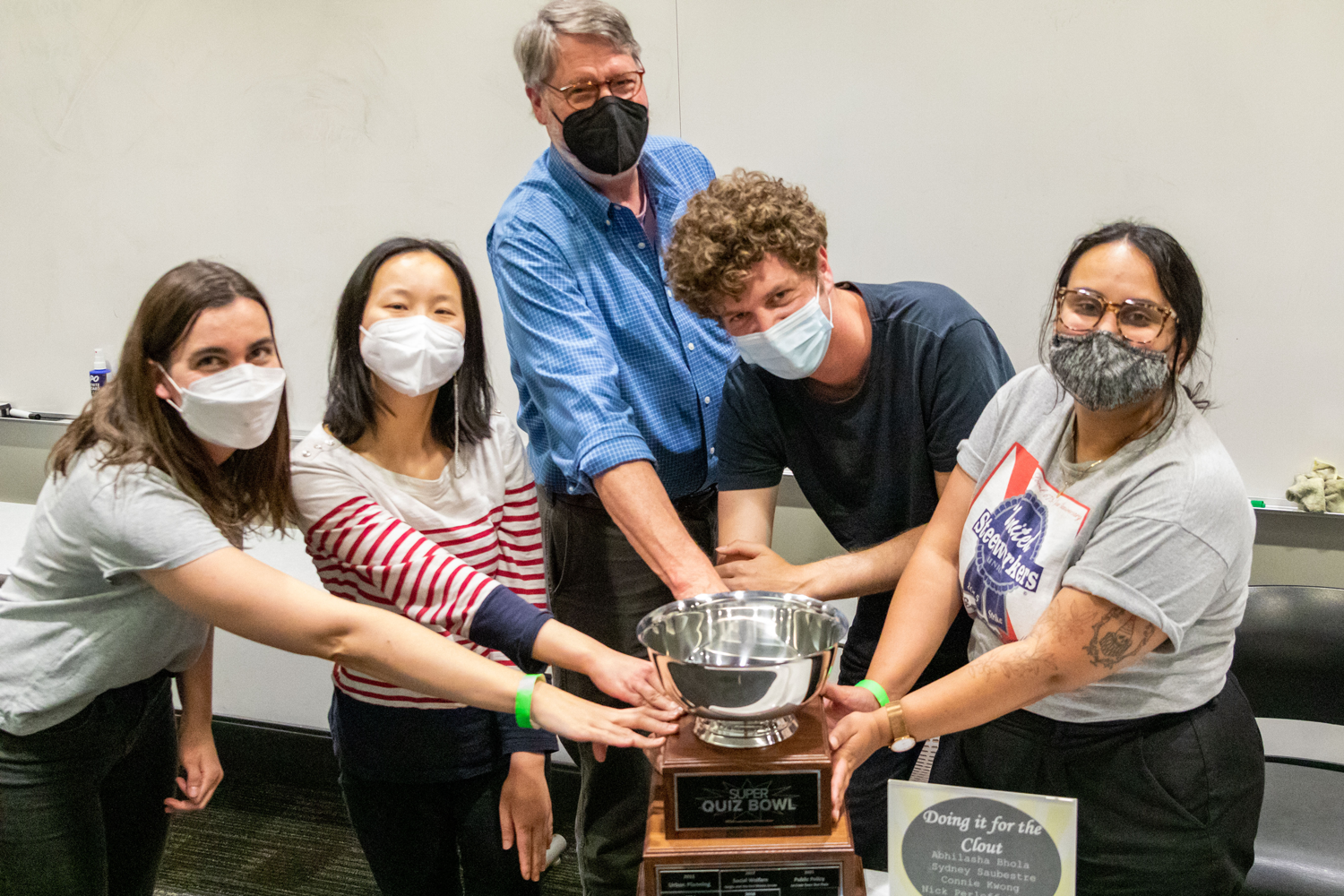
Battle of Wits Returns to In-Person Glory
After two years marked by dogged perseverance as a pandemic-compliant virtual competition, the ever-entertaining annual Super Quiz Bowl returned to its rightful place as a face-to-face-to-farce battle of useless knowledge and quick-wittedness on May 26 inside the Public Affairs Building.
As UCLA Luskin Director of Events Tammy Borrero said in an email to staff and students: “The competition remained fierce and over the top!”
The roomful of fierce over-toppers consisted of seven teams representing all three graduate departments, with staff and faculty being well-represented.
Having someone with inside knowledge at their table, such as Public Policy staff members Cristy Portlock and Kevin Franco, certainly benefited some teams during a round of competition that focused on Luskin School trivia. Erin Collins from the dean’s office had no problem deducing the three Ds in D3 Initiative (Diversity, Disparities and Difference, of course). And the student competitors of Doing it for the Clout had little trouble figuring out how to piece together jigsaw pieces to re-form a photo of teammate Mark Peterson, professor and incoming chair of Public Policy.
Urban Planning alum Khristian Decastro helped her team, The Perceptrons, get off to an early lead, and Associate Professor Adam Millard-Ball, a Quiz Bowl first-timer, helped another team of urban planners, CEQuizzers, rally into a tie with just one round to go.
In the end, however, Super Quiz Bowl 2022’s bronze, silver and gold medals — actually red, blue and gold ribbons — all went to teams from Public Policy. (Disclaimer: Those listed as registered participants below may not reflect actual participants because of some last-minute seat shuffling and, well, COVID.)
Third place — Quiz Queens (Marium Navid, Richard Diaz, Lily Cain, Maneesha Horshin, Stacey Hirose), Public Policy
Second place — Risky Quizness (Chinyere Nwonye, Colin Ries, Jessee Espinosa, Jesse Ostroff, Ronaldo Avina), Public Policy
Winners — Doing it for the Clout (Abhilasha Bhola, Nick Perloff, Connie Kwong, Sydney Saubestre, Mark Peterson), Public Policy
Unlike during the virtual years, there was no individual competition.
Here are the historical results:
- 2013: Urban Planning
- 2014: Public Policy
- 2015: Urban Planning
- 2016: Public Policy
- 2017: Social Welfare
- 2018: Public Policy
- 2019: Social Welfare
- 2020: Social Welfare and Urban Planning
- 2021: Public Policy
- 2022: Public Policy
As always, Grad Night funding was bolstered by participation, and Borrero said Social Welfare shared in 40% of the proceeds by fielding a team against the previously mentioned PP and UP. Urban Planning took the audience attendance award, with Public Policy sweeping the other categories — faculty/staff/alumni attendance and team participation.
View photos from the event (and get inspired for next year’s competition) in this Flickr album:
UCLA Luskin Scholars on Strengthening Democracy in the Americas
A June 8 conference on how to strengthen the collective defense of democracy in the Americas featured several scholars from the UCLA Luskin School of Public Affairs. The hybrid in-person discussion and webinar was a companion event to the Ninth Summit of the Americas in Los Angeles. The webinar focused on strengthening the Inter-American Democratic Charter, adopted in 2001 by 34 countries of the Organization of American States. The goal is to generate and advance realistic policy recommendations to improve the charter’s application by OAS member states. President Gabriel Boric of Chile offered the keynote address . In addition to Dean Gary Segura, participating UCLA Luskin faculty included Adjunct Professor of Social Welfare Helmut Anheier, Professor of Urban Planning Susanna Hecht, Associate Professor of Urban Planning Veronica Herrera and Associate Professor of Public Policy and Urban Planning Paavo Monkkonen. The webinar is sponsored by the UCLA Burkle Center for International Relations, UCLA Latin American Institute and UCLA Luskin School of Public Affairs and co-sponsored by the Latin American Program at the Wilson Center, The Carter Center and the Community of Democracies.
View photos from the event on Flickr:
Tilly Wins Award From Labor Relations Group
Urban Planning chair Chris Tilly has been named a 2022 Academic Fellow by the Labor and Employee Relations Association (LERA). The award, which recognizes scholars who have made contributions of unusual distinction to the field of labor and employee relations, was given at the association’s annual membership meeting, held virtually from June 3-5. Françoise Carré of the University of Massachusetts, Boston, was also honored with an Academic Fellow award. Tilly and Carré are co-authors of the award-winning 2017 book “Where Bad Jobs Are Better,” which identifies room for improvement in the U.S. retail sector. Citing a rigorous study of working conditions in seven countries, the authors conclude that low wages, unpredictable work schedules and limited opportunities for advancement are not inevitable characteristics of the retail sector. Tilly and Carré also collaborated on a chapter in 2020’s “Creating Good Jobs: An Industry-Based Strategy.” The LERA Academic Fellow awards are given annually to scholars who have served more than 10 years studying disciplines including industrial relations, labor law, economics, human resources, business, sociology, political science and organizational behavior. The nonprofit association also bestows Fellow Awards on practitioners in the labor and employment relations field. A full list of the award winners is available on the LERA site.
